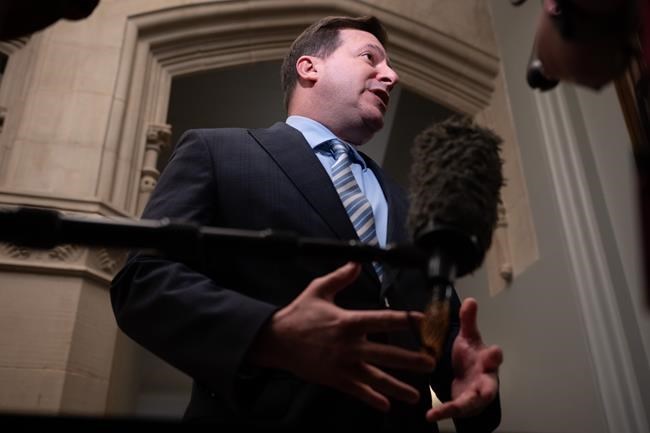OTTAWA — Humanitarian and development groups are expected to testify this afternoon as the House justice committee examines a bill that would amend the Criminal Code to allow aid workers to operate in Taliban-held Afghanistan.
Charities say Global Affairs Canada has warned them that purchasing goods or hiring locals in Afghanistan would involve paying taxes to the terror group, and put them in breach of the Criminal Code as the law is currently written.
Canada is far behind its allies in changing its laws or issuing a waiver so that citizens can deliver aid without falling afoul of such laws, and the Liberals are proposing a system in which groups can apply for exemptions.
Doctors Without Borders says Ottawa should instead issue a blanket exemption for humanitarian workers, saying the proposed system will delay the delivery of aid and risks political interference into principles enshrined in international law.
But Public Safety Minister Marco Mendicino says a statutory carve-out would risk terrorism groups abusing the process.
This week, bureaucrats told MPs that the idea of a blanket exemption could apply only to humanitarian work such as medical services and not to development projects such as running a school.
The committee will hear today from experts in terrorism financing, as well as aid groups including the Canadian Red Cross and World Vision Canada.
The International Civil Liberties Monitoring Group argues Canada should get at the root of the problem by narrowing the scope of its terrorism laws. It says the proposed system risks putting NGOs at risk because the approval process could have them perceived as working in conjunction with Ottawa, which by law would be able to request information from aid groups.
The group also argues that global organizations will prioritize working with nationals of other countries that have a blanket exemption.
Maintaining support for desperate Afghans without empowering the Taliban has become a fraught issue for many of Canada's allies.
In Washington, the U.S. Special Inspector General for Afghanistan Reconstruction testified that non-governmental organizations risk the Taliban freezing their bank accounts or closing their offices if they don't divert some of their aid to the terror group.
"The Taliban generate income from U.S. aid by imposing customs charges on shipments coming into the country and charging taxes and fees directly on NGOs," read speaking notes prepared for John Sopko.
He noted that the Taliban has forced NGOs seeking services to purchase them from the terror group, such as car rentals.
He said the regime is also "diverting funds away from groups the Taliban considers hostile … for instance, by redirecting international educational and humanitarian funding away from the ethnic minority known as Hazaras."
This report by The Canadian Press was first published April 19, 2023.
Dylan Robertson, The Canadian Press




